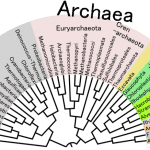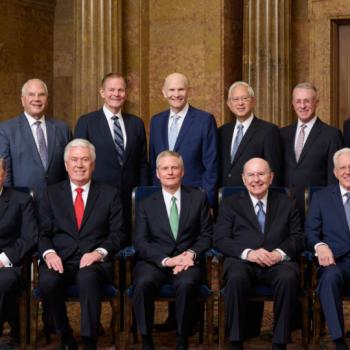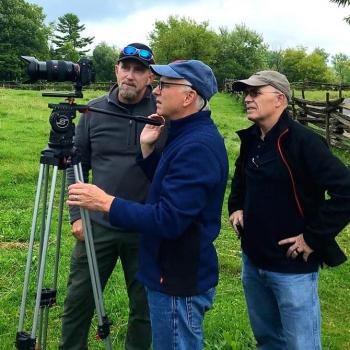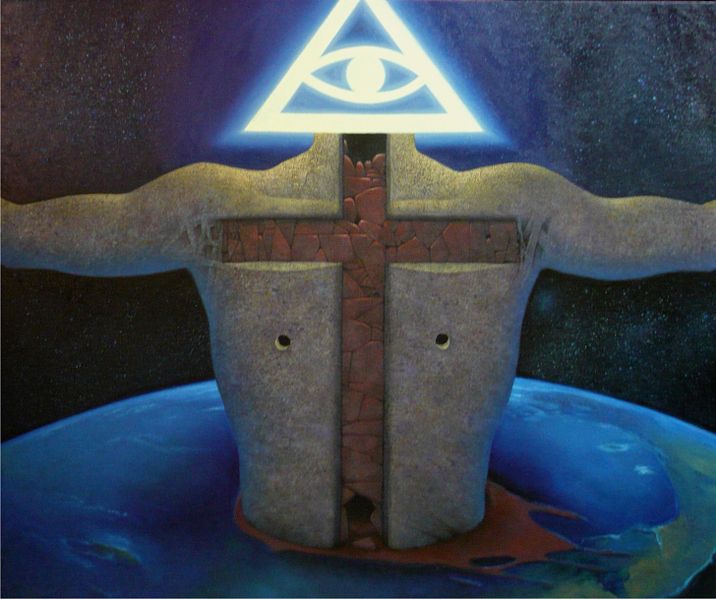
(Wikimedia Commons public domain photograph)
Two new articles went up today at noon (Utah time) on the website of the Interpreter Foundation. We hope that you’ll enjoy them:
“Toward a Greater Appreciation of the Word Adieu in Jacob 7:27,” written by Godfrey J. Ellis
Abstract: The phrase “Brethren, adieu” (Jacob 7:27) has been criticized over the years as an obvious anachronism in the Book of Mormon. That criticism holds no validity whatsoever, as others have pointed out, since many English words have French origins. It’s worth considering, though, a deeper meaning of the word. In French, it carries a nuance of finality — that the separation will last until a reunion following death (à Dieu, or until God). This deeper meaning of adieu appears to have been known by Shakespeare and frontier Americans although the second meaning is not generally recognized by English speakers today. However, Jacob 7:27 appears to reflect this deeper meaning as do certain uses of another valediction in the Book of Mormon — that of farewell. With the deeper meaning of adieu in mind, the parallel structure in Jacob 7:27 — “down to the grave,” reflecting the finality of adieu — becomes more apparent. The question of whether Joseph Smith was aware of the deeper meaning of adieu is taken up by looking at how the word was used in the Joseph Smith Papers. The take-away is that rather than reflecting an error on the part of Joseph Smith, the word adieu, with its deeper nuance of finality until God, is not only an appropriate term, it appears to strengthen rather than undermine the case for the authenticity of the Book of Mormon.
“Interpreting Interpreter: Addressing Valedictions,” written by Kyler Rasmussen
This post is a summary of the article “Toward a Greater Appreciation of the Word Adieu in Jacob 7:27” by Godfrey Ellis in Volume 55 of Interpreter: A Journal of Latter-day Saint Faith and Scholarship. An introduction to the Interpreting Interpreter series is available at https://interpreterfoundation.org/interpreting-interpreter-on-abstracting-thought/.
The Takeaway: Ellis provides an exploration of the use of the word adieu in Jacob 7:27, arguing that the deeper connotations of the French word, which implies a more permanent kind of separation, fits the context of that scripture, with the use of the word fitting both Joseph’s linguistic milieu and the Early Modern English that characterizes the Book of Mormon. That meaning also has implications for the parallelistic structure of that passage.

(Wikimedia Commons public domain photograph)
As I’ve done a number of times previously, I represented the Interpreter Foundation this afternoon at a luncheon on the campus of Brigham Young University sponsored by BYU’s College of Religious Education. The luncheon and program honored the winners of the College’s annual student essay contest and its annual student visual arts competition. Various monetary prizes were presented to the winners, as were bundles of booty from Scripture Central, the Mormon History Association, and BYU Studies. Among the treasures for each of them was a DVD copy of the Interpreter Foundation docudrama Undaunted: Witnesses of the Book of Mormon. But the poor lambs were obliged to listen, first, to brief remarks from each of the organizations represented — including from, well, me.
By the way, here’s something about Brigham Young University that’s worthy of note and that could, arguably, even have been enshrined in the Christopher Hitchens Memorial “How Religion Poisons Everything” File©: “BYU ranked No. 3 in the nation for producing most U.S. Fulbright Scholars: “Mind-expanding and culturally enriching” experience allows BYU professors to study, teach overseas”
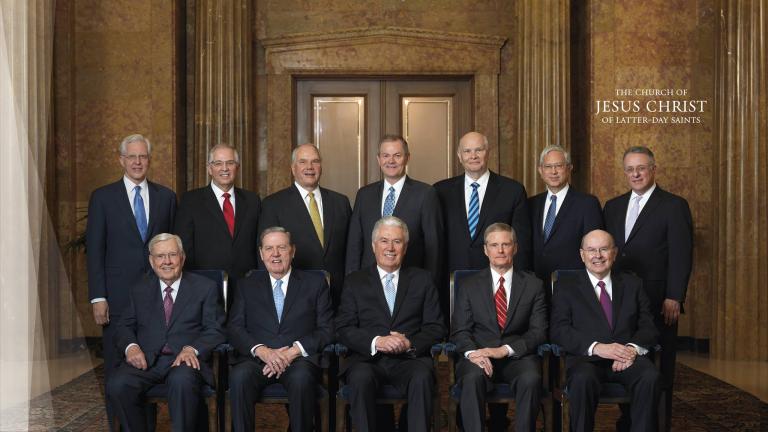
You may perhaps recall that, prior to the call of Elders Gerrit W. Gong and Ulisses Soares to the Council of the Twelve, the presiding quorums of the Church of Jesus Christ of Latter-day Saints were frequently condemned as too white-bread and too monoculturally American (with the partial exception, of course, of Elder Dieter F. Uchtdorf, who is German). You may also recall that, shortly after his ordination as an apostle, Elder Soares was still criticized as insufficiently Latin American and too white.
The issues aren’t quite the same, of course, but I couldn’t help but remember those criticisms when I read this: “Why Isn’t Nikki Haley Indian-American Enough? She’s getting subjected to the same garbage criticisms as Clarence Thomas.”

Finally, here is a trio of links that were definitely and quite appropriately located in the Christopher Hitchens Memorial “How Religion Poisons Everything” File©:
Pending personal oblivion, it seems that The Enlightened will simply have to endure such horrors. Mercifully, we’re all gonna die fairly soon. The pain won’t go on forever.



